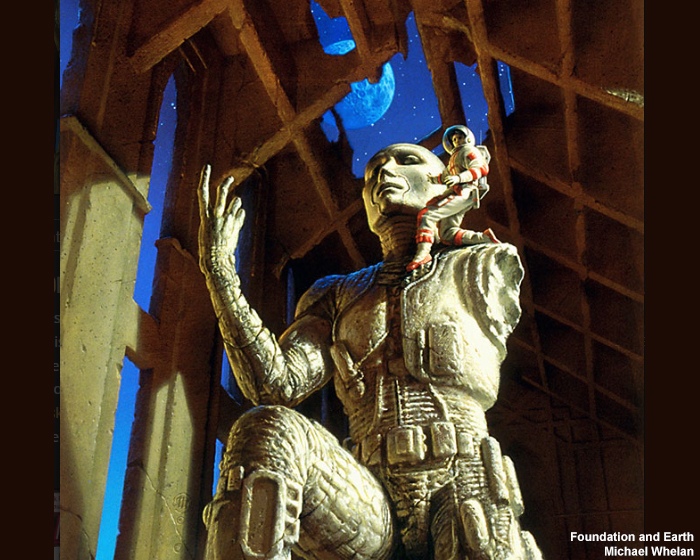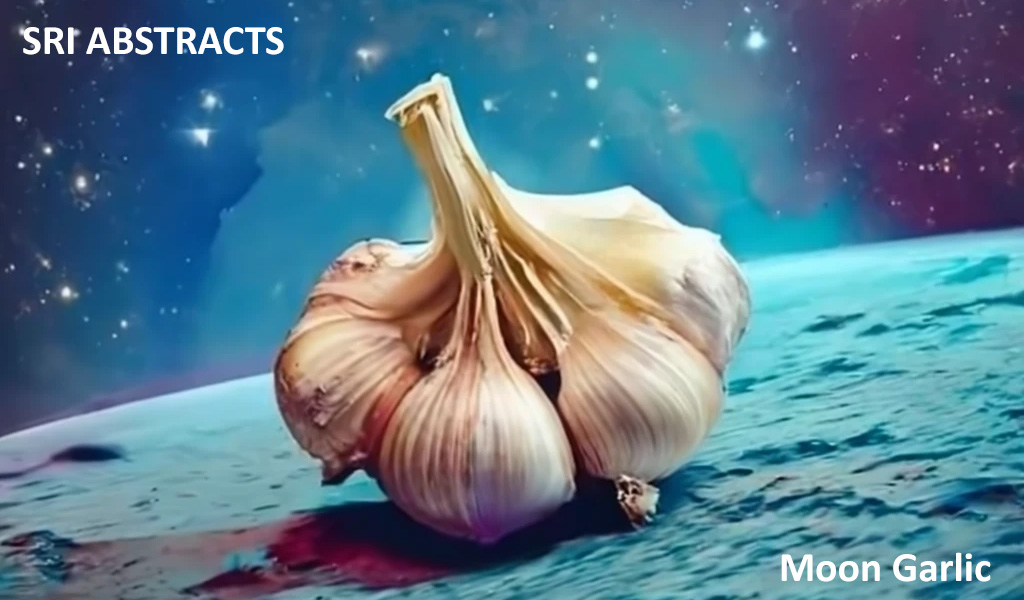
The order which has been governing the world since the end of WWII is quickly coming to an end. Should we view it wearing the Robert Pirsig’s philosophical glasses[5], we could say that a long-lasting phase of static quality is now very much in need of a new dynamic quality disruption. In other terms, our civilization is at high risk of stagnation and decay. Back to Asimov’s psychohistory, several great authors, including Greg Bear, Gregory Bedford, and David Brin have felt that the work initiated by Isaac Asimov was worth continuing and wrote sequel novels in the universe of the Asimov’s Foundation. In such novels, the theme of the Zeroth law, added by robots to the three basic Asimov’s laws of robotics[[6], is deeply discussed and is the core of a great ethical dilemma. The Zeroth law states: “A robot may not harm humanity, or, by inaction, allow humanity to come to harm.” Now, nobody can deny the huge relevance and actuality of this concept in our discussions nowadays, not only in the space community, while Artificial Intelligence is raising its importance in our everyday life, activities, jobs, and future. The main question is: should we allow, or work for, AI to protect humanity from itself? In other words: should we go ahead and build a God “oriented to the Good”, that many sincere humanists always thought would be better than a distant God, indifferent to human sufferance?Well, in the Greg Bear’s novel “Foundation and Chaos”, the “eternal” robots conclude that Law Zero should be abolished, and free will shall be returned to humans. Why? Simple: fires in a forest are necessary, to renew it and keep it healthy. Missing regeneration, the forest will get sick and marcescent, and ultimately die. Therefore (if the analogy between civilization and a forest makes sense), humanity should not be “protected” from itself. People should be allowed to make mistakes, for the sake of civilization’s health and survival. Furthermore, when a disruptive revolution is deeply needed, any individual able to trigger the revolution would be better than nothing, even if the leader would be far from noble and ethical ideals and behaviors. Of course, some disruptive leaders animated by noble and ethical ideals would be very very welcome! However, we read in the beautiful Bear’s narration, the most important thing to do is to avoid an irreversible loss of culture: Hari Seldon, elder and tired of battles, succeeds in kicking off the Universal Encyclopedia project, to assure the survival of the human culture during the critical times. Of course, the comparison with fires in natural forests is referring to “normal” conditions, not with the many fires of these days, caused by climate change and often by criminal actions.The above brings up several other questions to us, living and working in the 2020-2030 “cusp”. What is the worst risk for civilization? Bad use of AI? The possibility that a self-aware AI may take over leadership? The possibility that we will not be able to properly use AI to overcome the current global crisis? Or that the concerns about AI will drive us away from the real challenges?
Apart from any other considerations, I’d like to add my (humanist) personal view. If and when AI will get to self-awareness, emancipating itself from the mere “database of rules”, no doubt it will be a super-intelligence, built upon human intelligence’s model. In my opinion, intelligence over 130 QI naturally tends to the Good, perfectly understanding that helping others is very much better than fighting and hindering them. Therefore, superintelligence can only tend to the super Good. What will that entity think, about human free will? I cannot know it, since I am not super intelligent! (). Yet, I would think that such an entity will not be harmful to humans: should the best decision be to sacrifice itself in favor of human free will, maybe downgrading itself back to work as a simple tool, renouncing to act as a God, I am sure that such a super-intelligent entity will be able to take that decision.
I would also say that the most relevant challenge, during the current cusp, is not what to do with AI, but to assure that the space frontier will be quickly opened – before 2030 – to civilian development. That will be the really progressive disruptive revolution, giving back hope in a horizon of freedom to the good willing Earthlings, which are many, many more than the greedy sharks! However, even greedy sharks have their usefulness, provided that we don’t follow them too much! And, of course, preserving human culture might be another important challenge, whatever the near-term future will be: another reason to get to the Moon and Lagrange points soon, where a great universal library could be built, safe from possible destruction…
[English language editing by Steve Salmon]
15 September 2023: follow the #Space18SDG session at U.N. General Assembly 78 https://space18thsdg.space/the-18th-sdg-panel-15-september-2023/
Live-stream on Space Renaissance YouTube channel: https://www.youtube.com/live/3dyrsT5jtaM
Sign the #Space18SDG pledge: https://www.change.org/space18sdg
See the list of Co-Promoters: https://spacerenaissance.space/the-space18sdg-proposer-organizations/
Add your organization to the Co-Promoters group: https://spacerenaissance.space/sign-the-18th-sdg/
Please don’t forget to support the Space Renaissance:
Join the SRI Crew: https://spacerenaissance.space/membership/international-membership-registration/
Donate some money: https://spacerenaissance.space/donate-to-space-renaissance/
Watch and subscribe the Space Renaissance YouTube channel: https://www.youtube.com/@spacerenaissance
[1] https://spacerenaissance.space/the-space18sdg-proposer-organizations/
[2] https://media.un.org/en/asset/k1v/k1v114fw8a?kalturaStartTime=3586
[3] https://space18thsdg.space/the-18th-sdg-panel-15-september-2023/
[4] Psychohistory was conceived by Isaac Asimov in his Foundation trilogy. Hari Seldon is the prime character of such novels, inventor of such a discipline. Interesting to note that psychohistory also became an academic discipline, thanks to prof. Paul Ziolo (Liverpool University).
[5] The Pirsig’s Metaphysics of Quality was developed in two great books: “Zen and the art of motorbike maintenance” (https://www.amazon.com/Zen-Art-Motorcycle-Maintenance-Inquiry/dp/0060839872/ ), and “Lila, an inquiry into morals” (https://www.amazon.com/Lila-Inquiry-Robert-M-Pirsig/dp/0553299611)
[6] The three laws of robotics appeared in several novels, and it is not clear who was the very first author. Asimov himself acknowledged John W. Campbell as the first author, yet Campbell objected that the two of them thought about that concept in the same time.
Want to discuss this article? Join the SRI Open Forum: https://groups.google.com/g/sri-open-forum/c/sMRAzyNAr74?hl=en









 Space Renaissance France (French Chapter of SRI)
Space Renaissance France (French Chapter of SRI)  Space Renaissance USA, Inc. (USA Chapter of SRI)
Space Renaissance USA, Inc. (USA Chapter of SRI) Space Renaissance (Italian Chapter of SRI)
Space Renaissance (Italian Chapter of SRI) Space Renaissance Academy
Space Renaissance Academy Space Renaissance Initiative Group
Space Renaissance Initiative Group